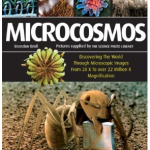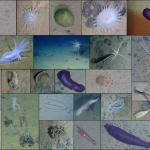
NOAA Great Lake Environmental Research Laboratory ships: Laurentian, Shenanon and Huron Explorer. In 1998, President Clinton enacted Executive Order 13101 for government agencies to reduce waste, recycle and use environmentally friendly and sustainable products including bio-products. Fast forward to 2007 and NOAA has heeded the call to reduce its environmental footprint by replacing petroleum-based fuels and lubricants with bio-based ones. In a press release from the NOAA website, Richard Spinrad, NOAA assistant administrator for Ocean and Atmospheric Research, commented that,
Our Great Lakes laboratory is advancing our larger mission as stewards of the marine environment, and NOAA is pleased that their efforts have again been recognized. This effort combines our pre-eminent research in the Great Lakes with a benefit to society by operating these vessels in an environmentally friendly manner.
This move by the NOAA Great Lakes Environmental Research Laboratory (GLERL: which operates the ships Shenahon, Laurentian, and Huron Explorer) has garnered them the 2007 White House “Closing-the Circle” award in the green purchasing category. They are already seeing reduced costs and a positive impact on the ship’s crews and researchers.
Below are some of the key innovations that earned the Great Lakes Lab this award:
* The GLERL project included conversion of vessels 30 to 50 years old, instead of engineering bio-products into new vessel designs.
* Soy biodiesel, a true alternative energy, became the primary component for main engine propulsion at 100 percent, rather than a 20 percent blend with petroleum diesel that has been use for a number of years.
* Building on biodiesel success, all ship mechanical systems were converted to bio-products resulting in the first U.S. research vessel to operate exclusively with bio-based products. This was accomplished through further conversion to rapeseed hydraulic oils and canola motor oils. It is this complete package that carries the strongest message supporting NOAA environmental stewardship, the feasibility of the bio-products, and positive public image.
We at Deep Sea News applaud the GLERL and hope the rest of the NOAA and NSF fleets will follow suit and switch to more environmentally friendly practices. We recognize that the technological hurdles are higher for larger ocean-going ships, but every effort should be made to reduce their environmental footprint. This initiative from GLERL has shown reduced costs, an improved image and morale and shown that bio-products are feasible in day-to-day operations of major research ships. We hope more agencies will also follow suit with the Clinton administration’s executive order to reduce their environmental footprint and commend the Bush Administration on recognizing this achievement. Hopefully this may encourage more environmentally sound practices.





